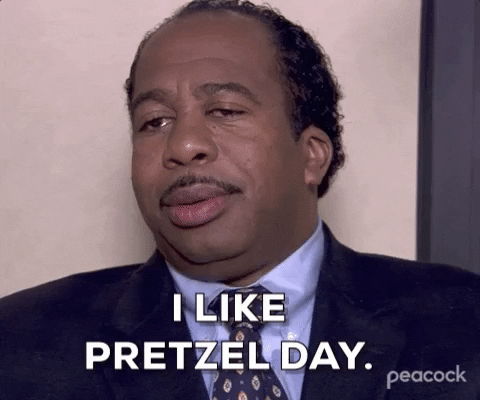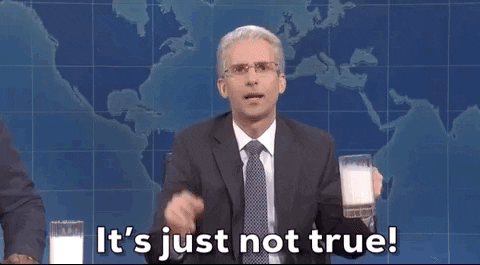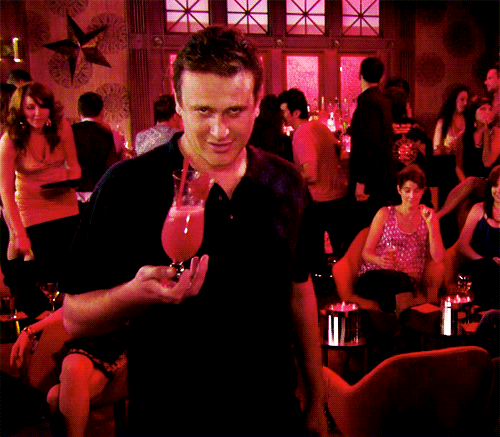27 Facts You Need To Know About Alcohol And Fitness
“Trust me, you can dance.”
Key Takeaways
I’d like you to know the evidence-based truth so that you know exactly how alcohol affects your body and performance.
Alcohol is referred to as “empty calories” because it’s calorically dense but completely void of vitamins, minerals, or anything else the body finds useful.
Even if you down 20 beers between 5pm Friday and 9am Monday, you will not gain weight unless you’re eating more calories than you burn.
Moderate drinking does not interfere with strength or muscle building.
Enjoying 1-2 drinks every once in a while won’t have a negative impact on your ability to train hard, recover well, or live a long and healthy life. Consistently drinking 5, 6, 7, or 10, 11, 12+ drinks will wreak havoc on your fitness, overall health, and shorten your life.
Should you cut out alcohol to improve your health?
This weekend, I’d like you to completely abstain from drinking alcohol. It’s poison that will blow up your belly, shrivel your hard-earned muscle, and kill you. Instead of drinking alcohol, try sparkling water with a slice of lemon or sugar-free organic hibiscus iced tea. If you’re serious about your health and fitness goals, you will not let a sip of alcohol touch your lips this weekend…
… Just kidding!
Humans have been drinking alcohol for 10 million years and we’re not going to stop any time soon (1). I don’t want you to pass on the booze this weekend. In fact, I’ll never ask you to abstain from alcohol, if you don’t want to. You’re going to drink no matter what I say, anyway. But I’d like you to know the evidence-based truth so that you know exactly how alcohol affects your body and performance.
Here are 27 facts you need to know about alcohol’s effect on your health, fitness, and life.
The health effects of alcohol.
1. Alcohol is poisonous.
When you take a sip of your White Claw or Bud Light, the alcohol is broken down and your liver produces a toxic compound called acetaldehyde. Specifically, after the alcohol slides down your gullet…
Your liver processes it and produces acetaldehyde
Acetaldehyde is converted into acetate
Acetate is converted into carbon dioxide and water
In small amounts, the body can process acetaldehyde effortlessly and prevent it from causing harm (2). However, if you drink too much, too quickly, the body is no match for dealing with the onslaught of the toxic byproduct. Acetaldehyde builds up and blood alcohol levels rise, causing chaos in your body.
This is why excessive drinking causes problems while drinking in moderation appears to be harmless (3).
2. Alcohol is lethal in high amounts. So is water.
The dose makes the poison. Just like water, alcohol is not inherently harmful (4). The body processes alcohol well in small amounts, just as it is usually able to regulate blood levels of other compounds such as glucose or sodium.
That said, if you drink a bottle of gin in an hour, or stuff 20 doughnuts and 20 soft pretzels down your gullet every day for your entire life, problems begin to arise.
3. Heavy drinking increases risk of cancer and liver disease.
You probably already knew this. Specifically, heavy drinking has been linked to at least these 7 cancers:
Bowel cancer.
Breast cancer.
Laryngeal cancer
Liver cancer.
Mouth cancer.
Oesophageal cancer
Pharyngeal cancer (5)
Although the specific reason heavy drinking leads to cancer has not been identified, a few theories include:
DNA Mutation - In high amounts, acetaldehyde may damage DNA and prevent cells from repairing cancer-causing damage.
Hormones - Drinking can increase levels of certain hormones such as oestrogen, which has been linked to breast cancer.
Folate - Heavy drinkers have been found to have lower levels of folate, a vitamin that helps produce DNA. Low folate levels are correlated with a higher risk for certain cancers.
(6, 7, 8)
4. Heavy drinking is associated with an increased risk of mental health disorders.
High alcohol intake is associated with higher rates of depression, anxiety, and suicidal tendencies (9, 10). Of course, correlation does not equal causation. Does heavy drinking play a role in the development of these diseases, or do those already suffering tend to self medicate with alcohol? We don’t know.
5. Heavy drinking likely reduces quality of life and decreases productivity.
Those that are dependent on alcohol report lower quality of life and lower productivity than their sober counterparts. No shockers here (11). Interestingly enough, these researchers found binge drinking (which they defined as >6 drinks) had a stronger negative impact on productivity than annual drinking frequency, suggesting that the weekly weekend binge may be harmful than the steady 1-2 beers per night (12).
6. The positive effects of moderate drinking are over blown.
You can find plenty of studies (here’s a few here, here, here, and here, for instance) that show a positive effect of moderate alcohol (13-16). It’s true, these studies do show a health and longevity promoting effect of 1-2 drinks/day.
However, all the evidence supporting moderate alcohol intake is based on observational research and, again, correlation does not prove causation. The researchers didn’t account for confounding factors such as BMI, smoking habits, socioeconomic status, etc. - this throws a significant wrench in the plans for those of you that glug down a glass or two of red wine each night “just for your health.”
In many of these studies, those that had 1-2 drinks per day were wealthier and more educated than those that drank the most. As income and education are correlated with better health and a longer life, the results of these studies don’t tell us much (17).
Other variables that are unaccounted for in these studies include:
Misreporting - a big problem because no one, unless you’re Chad, the president of Pi Kappa Alpha, likes to admit how much they really drink.
Binge drinking - I’d bet a pretty penny that drinking 2 glasses of wine/night is healthier than ripping 14 shots of tequila over the course of a few hours on a night out with the boys, yet both average out to 14 drinks/week. Do you see the problem?
Healthy user bias - those that don’t rip 14 shots every night out are also less likely to cap the night off with a few Big Macs and more likely to eat more kale. The numbers don’t tell the whole story.
In studies that account for education and income, the benefits of moderate drinking vanish into thin air (18).
7. Moderate drinking (1-2 drinks per day) is likely harmless.
Even though you’ll see clickbait that threatens “Just one drink a day shortens your life” they’re likely false (19)
If the authors cite research to support the claims, they’ll probably choose this study or this study because they’re massive meta analyses that included thousands of subjects (20, 21). Both studies do show a slight increased risk of adverse health effects with consuming even one drink per day, but the level of the risk is inconsequential. The researchers found that at 2 drinks/day, negative health risks begin to increase significantly but still not to a concerning degree.
Again, the researchers did not adjust for confounding variables such as physical activity, BMI, or even smoking habits. If you're not having more than 1 or 2 drinks/day, and not downing 14 shots every Saturday, you have nothing to worry about.
The nutrition of alcohol.
8. Alcohol is a macronutrient, just like carbs, fats, and protein. It contains 7 calories/gram.
Our diets are composed of four macronutrients:
Carbohydrates - 4 calories/gram
Protein - 4 calories/gram
Fat - 9 calories/gram
Alcohol - 7 calories/gram
As you can see, alcohol is nearly as calorically dense as fat but completely void of vitamins, minerals, or anything else the body finds useful. This is why alcohol is referred to as “empty calories.”
9. About 20% of calories in alcohol are required for digestion.
Alcohol has a high thermic effect of 20%, meaning that 20 calories of your 100 calorie Fireball shot are used by the body to process the alcohol. For reference, here are the thermic effects of the other macros:
Protein - 20-30%
Carbs - 5-10%
Fats - 0-3% (22)
This study even found that when people replaced some of their carb intake with alcohol, they lost more weight than those that ate the same amount of calories from carbs alone (23).
Alcohol’s effect on body composition
10. Alcohol is not automatically stored as fat.
The laws of thermodynamics still apply. Even if you down 20 beers between 5pm Friday and 9am Monday, you will not gain weight unless you’re eating more calories than you burn.
11. Alcohol consumption does decrease fat burning.
Because alcohol is poison, getting it broken down as quickly as possible is priority number one of the body. This process is so important that the body even pauses the processing of carbs and fats until the alcohol is cleared (24).
Put another way, as soon as that sip of red wine touches your lips, your body pulls the “Alcohol Emergency Alarm” and sets off a cascade of reactions:
Ingest alcohol
Stops the digestion of fats and carbs
Fat is stored as body fat and carbs are stored as glycogen
The fat and carbs remain in storage purgatory until the alcohol is cleared
If you’re in a calorie surplus (ate more than you burned) and consuming a lot of dietary fat, alcohol can cause excess fat storage
If you’re trying to limit fat gain (who isn’t?), do your best to avoid eating high calorie, high fat meals along with your alcohol.
12. Drinking alcohol while in a calorie surplus and consuming lots of dietary fat can increase fat storage.
In case you missed it at the bottom of #11, I wanted to reiterate - alcohol consumption can increase fat storage.
However, ONLY if:
You consume more calories than you burn over time
You eat a high fat/high carb meal with your alcohol (if fat loss is the goal, do your best to limit post-drinking food binges)
13. Drinking alcohol while in a calorie deficit has no impact on body fat levels and may even offer fat loss benefits.
Here’s some good news -the body is unable to efficiently store Acetaldehyde as body fat (25). Thus, unless you’re eating in a calorie surplus, alcohol will not increase your body fat.
14. Moderate alcohol consumption may increase insulin sensitivity in the short term.
Some more good news - there’s evidence that drinking in moderation may improve insulin sensitivity (i.e. blood sugar regulation) in some people. This meta-analysis found that moderate alcohol intake was associated with decreased HbA1c (measure of blood sugar fluctuations over 3 months) and decreased fasting insulin, as well as improved insulin sensitivity in women (26).
Alcohol’s effect on performance
15. Heavy drinking reduces testosterone.
I remember the first time someone told me that alcohol reduces testosterone. I was a smug high schooler finishing up my last few sets at the gym on a Friday afternoon, prepared to play beer pong deep into the night without a care in the world, When an intern, now of exercise physiology lab and Titan games fame, broke the news to me (27).
My eyes popped out of my head. It was on that day that I vowed to never touch another drink for as long as I lived.
Just kidding, I didn’t swear off alcohol. Nevertheless I did become more aware of its hormonal impact. She was right, alcohol intake does impact testosterone levels. That said, researchers are unsure of the magnitudes of the effects.
This study that had men drink 2-3 drinks/day for 3 weeks found that it decreased their testosterone by an average of 7% (28). Other studies have found that heavy drinking (10+ drinks) has negative impacts on testosterone, growth hormone, and cortisol (29).
16. Moderate drinking does not decrease testosterone.
Although frequent 10+ drink binges are bad news for testosterone, a few drinks once or twice per week is harmless. In fact, light drinking (2-3 drinks) has even been shown in men to acutely increase testosterone levels by about 17% (30). Don’t get too excited and start packing post workout beers in your gym bag - such a small, transient increase is not enough to have anabolic effects.
Here’s what you need to know about alcohol and testosterone:
If your goal is to maximize muscle building or fat burning, it’s not a a good idea to binge drink (more than a couple of drinks) very often
If you already suffer from low testosterone levels, high alcohol intake may be to blame
If you have healthy testosterone levels, don’t have aspirations of achieving 5% body fat, and drink in moderation most of the time, you have nothing to worry about.
17. Heavy drinking reduces exercise performance, interferes with muscle building, and decreases recovery.
In general, same idea as the effect of alcohol on testosterone and body composition - no problems in moderation, significant problems in excess (31-34). No bueno.
18. Chronic, heavy drinking can result in muscle loss.
No shocker here. Alcohol abusers, for many reasons, are more likely to have impaired muscle function (35).
19. Chronic, heavy drinking may result in obesity.
A double whammy! Not only can heavy drinking impair your ability to build muscle, it’s also associated with higher rates of obesity (36). A metabolic nightmare.
To drill it into your head, I’ll remind you - correlation does not equal causation. Drinking high amounts of alcohol will not cause you to become obese. Statistically speaking, it simply increases your risk. We’re not sure why, but it’s likely that…
Drinking empty calories
Reduced inhibitions (leading to poor food choices)
Increased hunger (37)
…all could result in consuming more calories over time and lead to weight gain.
20. Moderate drinking does not interfere with strength or muscle building.
That’s right, you can take a deep breath.
A few glasses of wine or bottles of beer will not hinder your ability to perform in the gym or, if it doesn’t disturb your sleep, significantly reduce your recovery (38, 39).
21. Drinking before bed can increase your resting heart rate and reduce recovery.
Drinking alcohol acutely increases heart rate and blood pressure (40). Even 1-2 drinks within 2 hours of bed can significantly increase your resting heart rate while you sleep. A higher than normal resting heart rate means more stress on your cardiovascular system, higher sympathetic drive, and decreased recovery between workouts.
The take home points on alcohol
22. Heavy drinking is bad. Moderate drinking is relatively benign.
The entire article boiled down to two sentences.
23. Try not to binge drink more than a couple times a year.
My high school or college friends will be the first to tell you that I, the annoyingly disciplined “picture of health” to many, have drunk a bit too much on more than one occasion.
Now that I’m older and wiser, you will not catch me drinking a lot (more than 2 drinks) more than a few times/year. If it’s a:
Wedding
Birthday
Real holiday (No, Columbus and Groundhog’s day don’t count)
...then I say let it fly. The evidence is clear - binge drinking is harmful to your health and fitness. Do your best to limit it to a few times a year.
24. The general recommendation of 7 drinks/week for females or 14 drinks/week for males is a reasonable guideline.
In general, the less alcohol you consume, the better it is for your health. If you don’t already, the questionable and slight positive health effects of drinking in moderation are no reason to start. That said, as far as we know, the current guideline of 7/14 drinks per week for females/males is sufficient to mitigate the potential negative effects of alcohol intake (41).
25. 14 drinks per week is NOT a target.
If it’s Saturday night and you’ve only had 1 beer this week, you should not ask the bartender to whip you up a baker’s dozen of whiskey sours. Just because you might be able to get away with 14 drinks does not mean you should aim to hit that amount every week.
26. Seriously. Heavy drinking is a bad idea - for you, your wallet, and everyone else involved.
If you’re unable to drink in moderation, the best course of action is to abstain completely. If you have trouble regulating your alcohol intake, find help here or reach out to me directly and I will refer you to more resources or directly to an addiction specialist (42).
27. Whether your goal is fat loss, muscle gain, or to live to 107 - there is room for alcohol in a healthy diet.
Enjoying 1-2 (maybe even 3, if you’re larger have superior alcohol processing genetics) drinks every once in a while won’t have a negative impact on your ability to train hard, recover well, or live a long and healthy life (43).
Consistently drinking 5, 6, 7, or 10, 11, 12+ drinks will wreak havoc on your fitness, overall health, and shorten your life. Proceed with caution.
The final word on alcohol.
“To alcohol, the cause of...and solution to...all of life’s problems.”
Alcohol is a double-edged sword. For some, drinking is a responsible way to unwind after a stressful week, a celebration, and enhancer of the most special moments of life. For others, it’s a crutch used to stumble through a life full of sadness and despair.
Again, the dose makes the poison. Just as chronic stress or bacon and eggs for every meal might kill you, drinking excessive amounts of alcohol will make you sick, shorten your life, and - worst of all - prevent you from getting strong, lean, and turning heads at the beach this summer (just kidding).
If you’d like to prevent alcohol from getting in the way of your health and fitness goals but still want to go wild and crazy, the solution is clear -
Everything in moderation, including moderation.
A casual Friday night, baseball game, or Sunday brunch? Practice moderation and enjoy 1-2 drinks. Your best friend’s wedding, your birthday, or a MDW blowout? Let loose (44).
If you’d like a second opinion on when to practice moderation or when to let your freak flag fly, or need help in general overcoming the obstacles that so often get in the way of achieving health and fitness success, that’s what I’m here for.
With my 1 on 1 coaching service, I don’t hand you a meal plan full of tilapia and broccoli and throw you to the wolves. In addition to workout programming and weekly check-ins, I’m with you 24/7 to help you make the best decisions each day to reach your goals. It’s all about YOU. I meet you where you’re at, so that you can improve your fitness while:
Performing workouts you enjoy
Eating foods you like
Developing sustainable habits that you will use for the rest of your life
Yes, even while enjoying alcohol!
If you’d like my help, fill out this short coaching application and you can expect to hear from me ASAP.
After you do, we can celebrate over a beer.
Sources:
https://jamanetwork.com/journals/jama/article-abstract/2757730
https://jamanetwork.com/journals/jama/article-abstract/2513561
https://academic.oup.com/psychsocgerontology/article/73/4/649/2645642#115521450
https://www.thelancet.com/journals/lancet/article/PIIS0140-6736(18)30134-X/fulltext#%20
https://www.thelancet.com/journals/lancet/article/PIIS0140-6736(18)31310-2/fulltext#%20
https://academic.oup.com/ajcn/article-abstract/54/6/976/4715133?redirectedFrom=fulltext
https://pubmed.ncbi.nlm.nih.gov/25257868/
https://www.cdc.gov/alcohol/fact-sheets/moderate-drinking.htm
https://www.youtube.com/watch?v=5A1WQznUnEg&ab_channel=latestnewreleases
GIF Sources: Stevie Stanley Rachel Not True Joe Monica Daryl Johnny Phoebe Marshall Ron
(giphy.com)











